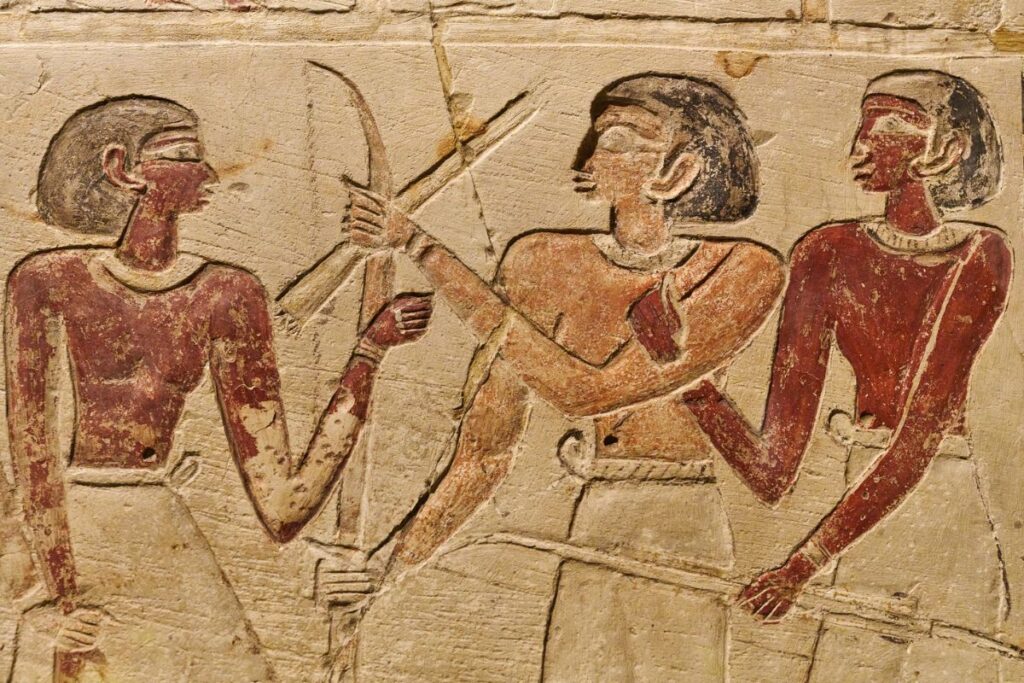Ever wondered how ancient civilizations managed to shape the world as we know it? These cultures were the architects of so many things we still use today, from democracy to farming techniques to written language. Let’s time-travel through ten fascinating civilizations that left their mark on humanity. Grab your metaphorical passport; this is going to be a fun ride!
Mesopotamia: The Original Innovators
Known as the “Cradle of Civilization,” Mesopotamia wasn’t just some dusty region between two rivers (the Tigris and Euphrates). These folks invented the wheel, developed the first known writing system (cuneiform), and laid down the basics of astronomy and law. Basically, they were the overachievers of ancient times. Oh, and Hammurabi’s Code? That’s where we first see the “eye for an eye” concept.
Ancient Egypt: Masters of Monumental Art
Pyramids, mummies, and hieroglyphs—oh my! The Egyptians were incredible builders and artists, and their culture revolved around the Nile River. They were pioneers in medicine, mathematics, and architecture. Plus, their afterlife beliefs gave us the ultimate spooky vibes, and they’re still inspiring Halloween costumes today.
Indus Valley: The Urban Planners
Think city life is a modern thing? Think again. The Indus Valley Civilization (modern-day Pakistan and India) had advanced drainage systems, planned streets, and even public baths. They were so chill that we still don’t know much about their government, but they clearly valued clean cities. Talk about ancient sustainability goals!
Ancient China: Inventors of Everything Cool
Paper, printing, gunpowder, and even noodles—China really set the bar high. The Han and Tang dynasties, in particular, were golden ages of innovation and culture. They also built the Great Wall, proving that they knew how to make a statement. Oh, and let’s not forget Confucius, the original life coach.
Ancient Greece: Philosophers and Party Starters
If you’ve ever quoted Socrates or attended an Olympics-themed party, thank the Greeks. They gave us democracy, philosophy, theater, and some of the most dramatic myths of all time. Their love for knowledge and debate still influences modern education and politics. Plus, they really knew how to rock a toga.
Roman Empire: The World’s First Superpower
All roads lead to Rome—and for good reason. The Romans were organizational geniuses, building aqueducts, roads, and cities that still stand today. Their legal system is the foundation of many modern laws, and their love for gladiator games made them history’s original sports fans.
Maya Civilization: Masters of Time
The Mayans didn’t just stare at the stars—they understood them. Their complex calendar systems and astronomical knowledge were way ahead of their time. Oh, and their pyramids? Absolute architectural goals. Fun fact: their writing system is one of the most sophisticated in the ancient world.
Persian Empire: The Diplomats
The Persian Empire was all about that multicultural vibe. They ruled over a massive area and were surprisingly tolerant of different cultures and religions. Their postal system (think ancient FedEx) and the Royal Road made communication and trade super smooth. Plus, Persepolis is still one of the most jaw-dropping ruins you can visit.
Aztec Empire: The Fierce Innovators
The Aztecs didn’t mess around. They built Tenochtitlán, a city so impressive that Spanish conquistadors couldn’t believe their eyes. They had floating gardens (chinampas), an advanced education system, and a knack for making chocolate a sacred drink. Respect.
Inca Empire: The Mountain Kings
High up in the Andes, the Incas created an empire connected by an intricate network of roads. They didn’t use written language, but their quipu (knotted strings) system was genius. And let’s be real: Machu Picchu alone is proof that they were on another level.
The legacy of these ancient civilizations is all around us—whether it’s in the democracy we practice, the math we learn, or even the snacks we eat (thanks for the chocolate, Aztecs). They may be long gone, but their influence is timeless.

